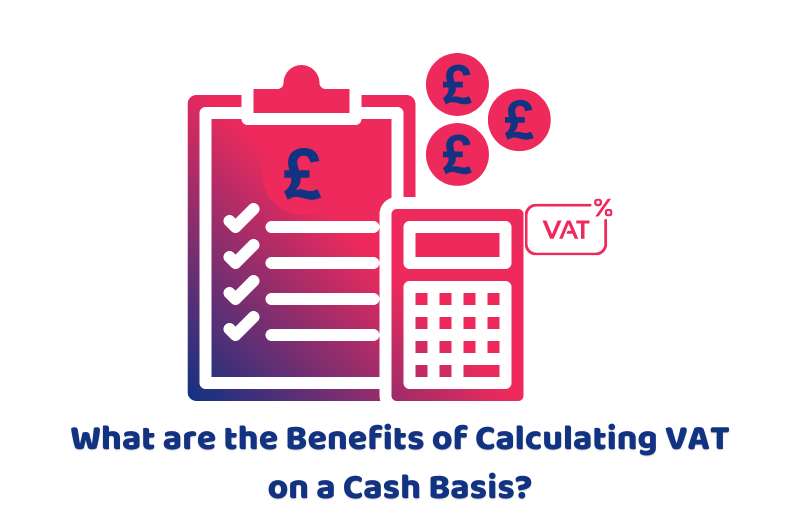VAT is known to have a hate-love relationship with businessmen in the UK mostly. This is because of the increases in the cash flow of their business due to the VAT that they love, however paying VAT to HMRC is not equally loved then. There are many businesses that would like to opt for the standard VAT scheme, however, there is another option that can work as a saviour to your cash flow. You must have an understanding of cash basis VAT here as well. This is known as the voluntary registration of the VAT which can bring a lot of benefits to your business. This will help to pursue your business growth dreams in the future.
This way you will be able to reclaim the amount of VAT spent on the cost of buying items. You will be known to have an established company that will bring in the trust of customers as well. This is the reason why many businesses choose voluntary VAT registration even before they reach a certain limit threshold. This brings you under the obligation of getting registered for VAT. The registration of VAT will require a range of responsibilities. This includes the accurate calculation of VAT. This can easily be done by using accounting software or you can ask your accountant to do the job for you. There can be two possible ways to calculate. Accrual accounting and cash basis accounting for VAT. We will be focusing on the consequences of using the cash basis accounting in this guide.
AccountingFirms can assist you in managing the number of benefits of the consequences of the cash basis VAT in the UK. Let’s talk to one of our professionals to know the details.
Cash Basis Accounting
The purpose of cash basis accounting and accrual accounting is the same which is to calculate VAT. However, what makes them both different is the method that is used to do the calculations. If you are opting cash basis accounting, you will do the calculations when you are in the process of making the payments to your suppliers or getting the VAT from your customers. On the other hand, accrual basis accounting is done when you are issuing invoices to your customers. Also when you are getting the invoices from the suppliers, unlike the process of cash basis accounting.
Moreover, the cash basis accounting is applicable to cheques, standing orders, direct debits, bank transfers, and card payments. It is imperative to mention this here because many people are confused about this being applicable only to physical cash. The buying and selling of products under certain financial agreements like hire purchase agreements and leases do not come under this. Moreover, conditional sale agreements are not considered or scenarios, where the payments will be due for a period of six or more months after the invoice, is issued.
How is Cash Basis Accounting Better Than Accrual Accounting?
There is a whole range of advantages that come with choosing the cash basis accounting for VAT. The prominent benefits are explained and listed below:
1- Relief from the Immediate Bad Debt
The benefit of getting the immediate bad debt comes with the cash basis accounting for VAT because if the payments are not received, you will not have to pay any VAT to HMRC.
2- Positive Impact on the Cash Flow
One of the prominent benefits is the cash flow of your business. This is because of the fact that you will not have to pay HMRC unless your customer has not paid the VAT to you.
3- A Simple Method of VAT Calculations
There are several examples of businessmen who find the experience of keeping records with cash basis accounting easier than keeping a record of invoices.
What is the Downside of Cash Basis Accounting?
Along with a range of benefits, there are certain parts that cause the downside of the cash basis accounting. Some prominent examples noticed among popular businesses are explained below.
1- Net Repayment of the Business is Affected
In the case of the new business set-up, when you plan to make an investment into new equipment, you will have to deal with delaying the signup process. This is because you will have to reclaim VAT before charging it to your customers. This is done by using the method of backdated claim.
2- Delay in the Recovery of VAT
If you are stuck in a situation where you are suffering from the recovery of VAT from a certain supplier, you can not do anything about it before making the payment to them.
What are the Consequences of Joining and Leaving the Scheme?
The scheme can be joined from 1st April for a certain business only on the condition that you can foresee the taxable sales will not go over the limit. About leaving the scheme, it is appropriate to leave the scheme immediately once your annual turnover has reached or crossed the limit of a certain figure.
The Bottom Line
Now that we have gathered a fair amount of information about what is cash basis VAT in the UK, we can bring the discussion towards wrapping up. There is no denying the benefits of cash basis accounting for the purpose of VAT calculations. However, there is always the downside of everything that is in the limelight of carrying a range of business benefits. Businesses must take serious consideration into this side of facts to avoid any damage caused to their business in the future. This will help to avoid unfavourable circumstances and make the right business decisions.
We are committed to delivering exceptional accounting services to our valuable clients in the UK to ensure they get the most professional solution to know what is the cash basis VAT in the UK.
Disclaimer: All the information provided in this article on cash-basis accounting in the UK, including all the texts and graphics, is general in nature. It does not intend to disregard any of the professional advice in the future.

